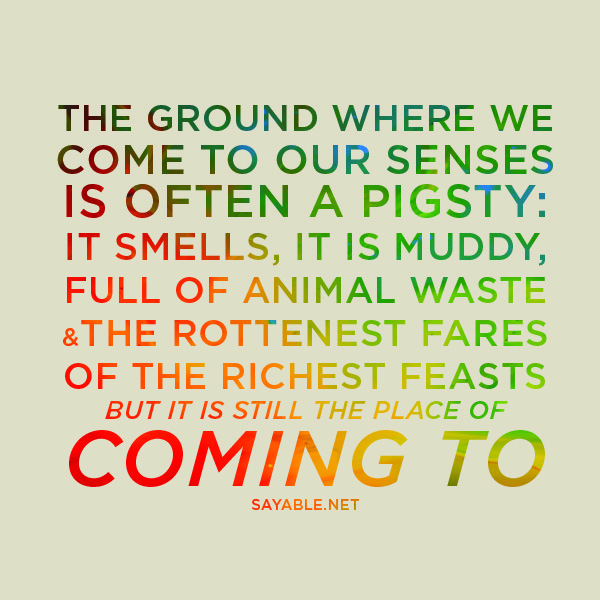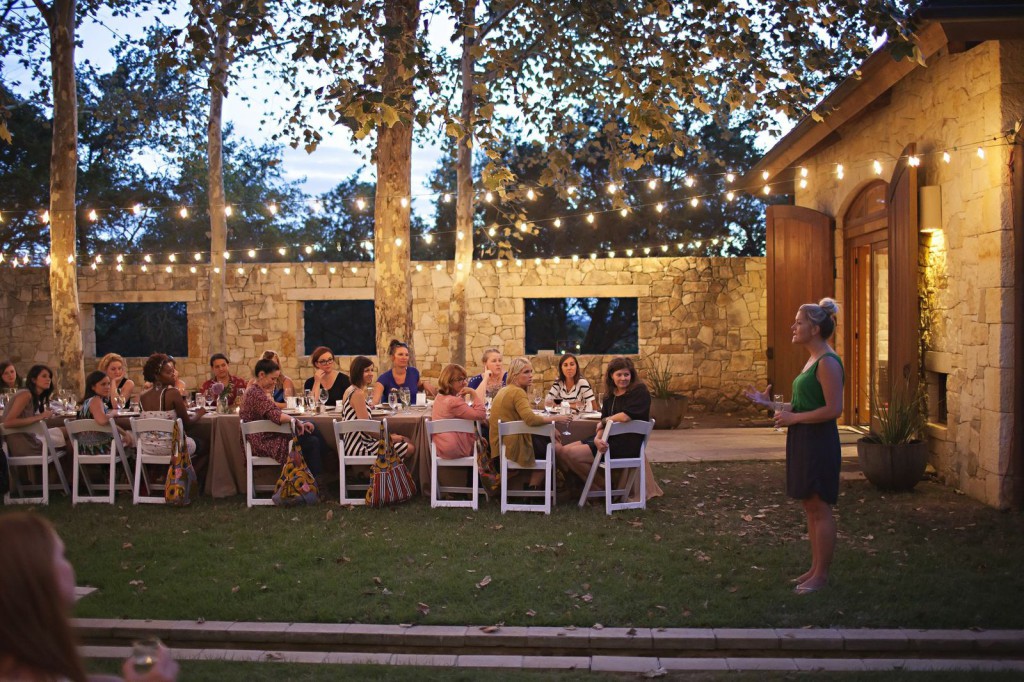 This week has been ablaze with conversations about millennials and leaving the church. CNN published an op-ed piece by Rachel Held Evans, the fearless leader of the marginalized and marginalizing millennials, on why there seems to be a mass exodus from the Church. Yesterday in a conversation with Micah Murray I was reminded that my very personal faith/church crisis is a common story among my generation and one which I beg God regularly to not let me forget. My carpet was snot-soaked for months on end and "Eli Eli lama sabachthani?" was my constant cry. I felt forsaken by God, the Church, and life itself.
This week has been ablaze with conversations about millennials and leaving the church. CNN published an op-ed piece by Rachel Held Evans, the fearless leader of the marginalized and marginalizing millennials, on why there seems to be a mass exodus from the Church. Yesterday in a conversation with Micah Murray I was reminded that my very personal faith/church crisis is a common story among my generation and one which I beg God regularly to not let me forget. My carpet was snot-soaked for months on end and "Eli Eli lama sabachthani?" was my constant cry. I felt forsaken by God, the Church, and life itself.
Yet it was the debasement of my mind that emptied me of me and led me straight to the sufficiency of the cross. That snot-soaked carpet was necessary to bring me to today. Micah made the point that we have a generation who is in that period and too often we kick them when they're down. What they don't need is kicking, I agree. But what I didn't need was just someone letting me vent for years on end, I needed the cross. I needed to be welcomed to the cross, not beat over the head with it. I needed someone to say, "There's room, there's room," and then make room for me.
. . . . . . . . . . . . . . . . . . . . . . . . . .
Here's a compilation of many of the responses I've read this week. I think most of them make valid points and should be read by both sides of this discussion. If we're only preaching to our choir, we're not making disciples, we're making an army, and it's not God's army. Depending on your angle of this discussion, I'd encourage you to click on some of the links here and listen, really listen to the points made and stories told. Whether you agree or not, it is important that we mourn with those who mourn and respect those with a different perspective (whether or not we feel respected back).
Why Millennials are Leaving the Church,
by Rachel Held Evans:
You can’t hand us a latte and then go about business as usual and expect us to stick around. We’re not leaving the church because we don’t find the cool factor there; we’re leaving the church because we don’t find Jesus there.
How to keep Millennials in the church? Let’s keep church un-cool.
by Brett McCracken:
As a Millennial, if I’m truly honest with myself, what I really need from the church is not another yes-man entity enabling my hubris and giving me what I want. Rather, what I need is something bigger than me, older than me, bound by a truth that transcends me and a story that will outlast me; basically, something that doesn’t change to fit me and my whims, but changes me to be the Christ-like person I was created to be.
Why We Left the Church,
compiled by Micah Murray:
You know my heart, if you’ve been here before. I don’t share these stories to disparage the church. I love the church. I want you to love it too, someday. But if you don’t, that’s ok. You aren’t alone. Just listen.
Jesus in the Church,
by Seth Haines:
As fate, fortune, and the Holy Ghost would have it, Mrs. Curtis drew my name. She never told me that she had come into possession of my pledge card. She never broached the subject of purity or lust with me, which is good because the awkward quotient to any such conversation would have been rivaled only by the time Sister Sarto had the “sex talk” with my class of sixth grade boys in Catholic school.
The Millennial Exodus and Consumer Church,
by Nate Pyle:
Christendom is coming to a close. Church is going to have to change. Call it a new reformation. Call it a changing of the guard. Call it what you want, but change is on the horizon. This makes how we have this dialogue very important. My hope is that, if we do it with a lot of grace and love, our dialogue might just be as beautiful as whatever emerges.
Why Millennials Are Leaving the Church: A Response to Rachel Held Evans,
by Trevin Wax:
Some millennials, like many from generations before us, want the church to become a mirror – a reflection of our particular preferences, desires, and dreams. But other millennials want a Christianity that shapes and changes our preferences, desires, and dreams.
United Methodists Wearing A Millennial Evangelical Face,
by Anthony Bradley:
One of the many blind spots in Evans’ entire project is that young evangelicals are not leaving evangelical churches to join mainline churches like the UMC, they are leaving the church altogether in many cases.
7 Lessons Learned from a Church of Millennials,
by Chris Morton:
We don’t have to worry about the “Millenial Exodus” because God has promised that the Gates of Hades will not overcome his church. We just have to decide if we are willing to get on board and be the church for the next generation.
Entitled, Don't Care,
by Caris Adel:
Who exactly am I having to prove my reasons to? To people who don’t want to engage while I’m still here?
Jesus in the Church (A Community Story),
comments moderated by Seth Haines:
I’d like to shift the focus away from the institutional wrongs or misplaced ideologies, and focus on the small, unsung saints who faithfully plug away at conforming themselves into the image of Jesus.
Why are millennials leaving church? Try atheism,
by Hemant Mehta:
It appears that atheists and Christians are finally working together on the same task: getting millennials to leave the church.
Where Have All the Young Adults Gone? Reflections on Why Young People Leave the Church,
by Jason Allen:
Why do young adults leave the church? This is a pressing concern, but an often-misplaced question. Instead of focusing so much on why young adults leave the church, let’s focus more on how they enter the church and how they engage it along the way.
And, finally, if you're interested, here's the piece I wrote for The Gospel Coalition on the subject.












